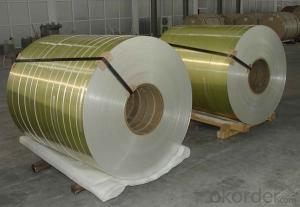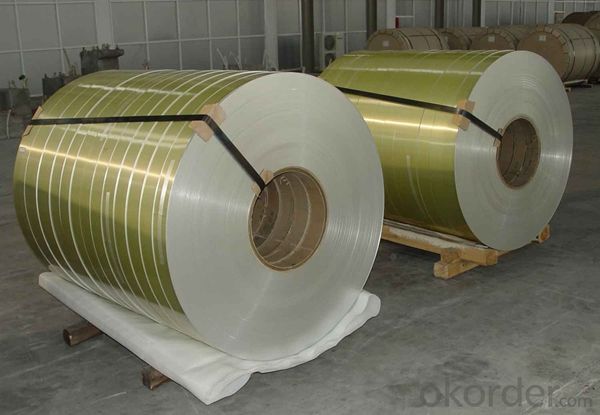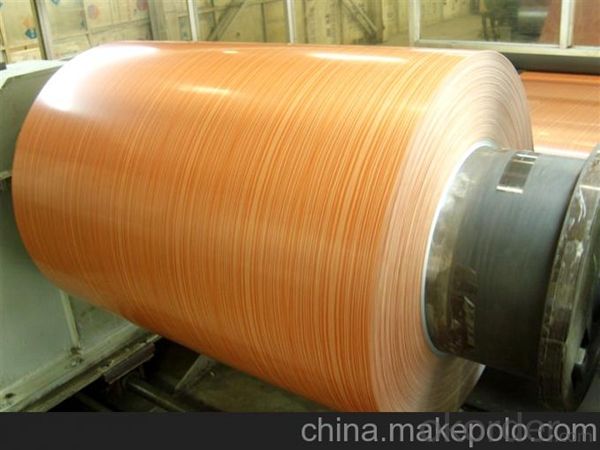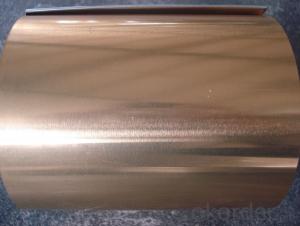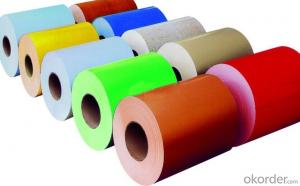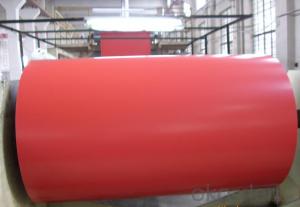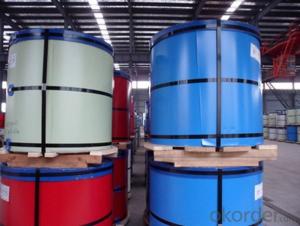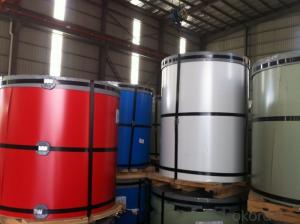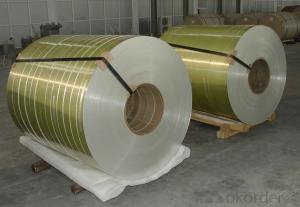6 White Aluminum Coil Roller Coating Line Yellow Color PE Paint Aluminum Painted Coil
- Loading Port:
- Shanghai
- Payment Terms:
- TT OR LC
- Min Order Qty:
- 5 m.t.
- Supply Capability:
- 10000 m.t./month
OKorder Service Pledge
OKorder Financial Service
You Might Also Like
Specification
1. Specification of Roller Coating Line Yellow Color PE Paint Aluminum Painted Coil
characteristics | Application |
1) Super peeling strength | 1) Building exterior curtain walls |
2) Excellent surface flatness and smoothness | 2) Decoration and renovation additions for old buildings |
3) Superior weather, corrosion, pollutant resistance | 3) Decoration of interior walls, ceilings, bathrooms, kitchens and balconies |
4) Even coating, various colors | 4) Shop door decorations |
5) Fireproof, excellent heat and sound insulation | 5) Advertisement board display platforms and signboards |
6) Superior impact resistance | 6) Wallboards and ceilings for tunnels |
7) Lightweight and easy to process | 7) Industrial materials, materials for vehicles and boats |
2. Application of Roller Coating Line Yellow Color PE Paint Aluminum Painted Coil
(1).Interior: wall cladding, ceilings, bathrooms, kitchens and balconies, shutters, doors...
(2).Exterior: wall cladding, facades, roofing, canopies, tunnels,column covers , renovations...
(3).Advertisement: display platforms, signboards, fascia, shop fronts...
3. Feature of Roller Coating Line Yellow Color PE Paint Aluminum Painted Coil
*Such coil is specially designed to replace aluminum ingot, due to the high export tax of aluminum ingot, the coil has better price than ingot.
*This type of coil can fit customer's remelting furnace just like ingot, no need to make any change to the production line that was previously used for ingot. The standard coil size and weight is very suitable for the feed gate of furnace.
*This type of coil causes less material wastage than ingot when remelted.
*Our coil is made directly from ore, no need to go though the ingot making process, quality is much better than other suppliers who use ingot scrap to make coil.
Be free from Oil Stain, Dent, Inclusion, Scratches, Stain, Oxide Dicoloration, Breaks, Corrosion, Roll Marks, Dirt Streaks and other defect which will interfere with use
4. Certificate:
SGS and ROHS(if client request, paid by client), MTC(plant provided), Certificate of Origin(FORM A, FORM E, CO), Bureau Veritas and SGS (if client request, paid by client), CIQS certificate
5. Image of Roller Coating Line Yellow Color PE Paint Aluminum Painted Coil
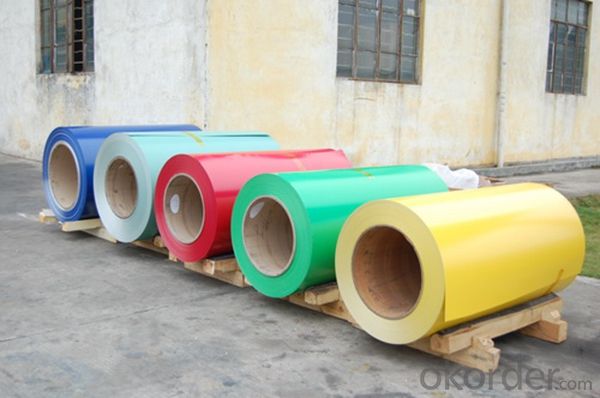
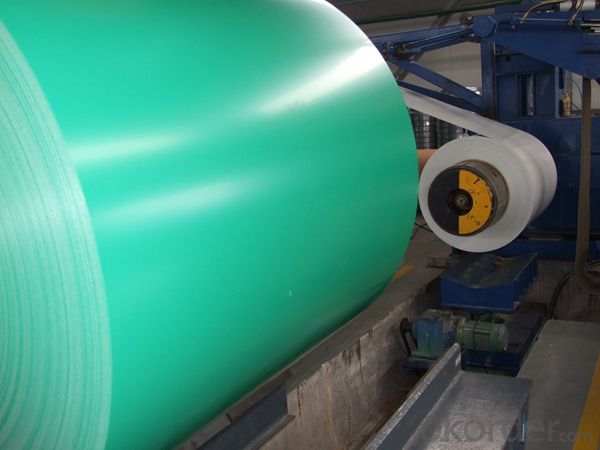
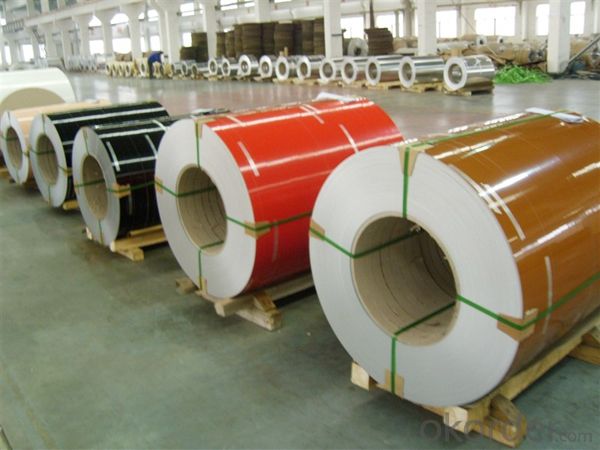
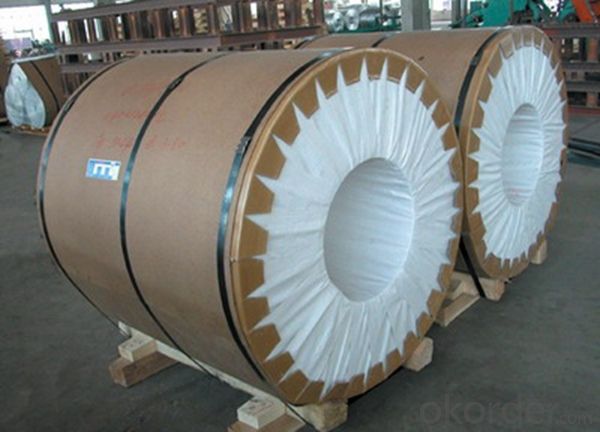
6. Package and shipping of Roller Coating Line Yellow Color PE Paint Aluminum Painted Coil
eye to wall
eye to the wall
with wood pallet (wooded case also available)
7. FAQ
1) What is the delivery time?
Dpends on actual order, around 20 to 35 days
2)What is the QC system:
We have QC staff of 20 persons and advanced equipment, each production is with MTC traced from Aluminum ingot lot.
3) What market do you mainly sell to?
Australia, America, Asia, Middle East, Western Europe, Africa etc
- Q: What is the electrical conductivity of aluminum coils?
- Aluminum coils have a relatively high electrical conductivity. Renowned for its impressive conductivity, aluminum boasts a rating of approximately 37.7 x 10^6 siemens per meter (S/m). As a result, aluminum is an exceptional option for a range of electrical uses, particularly in coil production. The exceptional conductivity of aluminum facilitates the efficient transmission of electric current through the coils, rendering them a fitting choice for electrical wiring, transformers, motors, and other electrical apparatus.
- Q: This question asks for an explanation of the distinctions among various grades of hot rolled aluminum coils, focusing on their characteristics and applications.
- <p>Different grades of hot rolled aluminum coils are distinguished by their chemical composition, mechanical properties, and applications. Grades like 1000 series are pure aluminum with high ductility and electrical conductivity, suitable for general purposes. 3000 series, with added manganese, offer moderate strength and are used in cooking utensils and chemical equipment. 5000 series, containing magnesium, are strong and corrosion-resistant, used in marine applications and aerospace. 6000 series, with silicon and magnesium, are known for their mechanical strength and are used in construction and automotive parts. Each grade has specific alloying elements that tailor its properties for different industrial needs.</p>
- Q: This question asks for methods to assess the quality of aluminum coils, which is important for various industries that use aluminum for manufacturing and construction.
- <p>To check the quality of aluminum coils, you should inspect for surface defects such as scratches, dents, or discoloration. Measure the thickness and width to ensure they meet specifications. Test the hardness and tensile strength to verify mechanical properties. Conduct a chemical analysis to confirm the alloy composition. Check for internal defects using non-destructive testing methods like ultrasonic testing. Assess the coil's flatness and straightness to prevent issues in further processing. Finally, ensure proper packaging and storage conditions to maintain coil quality.</p>
- Q: Is it possible to use aluminum coil for creating a sculpture?
- <p>Yes, you can use aluminum coil to make a sculpture. Aluminum is a versatile material known for its strength, lightweight, and malleability, which makes it suitable for sculpting. It can be bent, twisted, and shaped into various forms. When working with aluminum coil, you can use tools like pliers, wire cutters, and a metal bender to manipulate the coil into the desired sculpture shape. Ensure you take safety precautions, such as wearing gloves and eye protection, due to the sharp edges and the risk of injury from handling metal.</p>
- Q: Why does it take less energy to get aluminum metal from used cans than to get it directly from the ore?
- in order to extract the raw aluminum, you have to heat everything and melt it first, then remove the stuff that precipitates out as it cools or forms via chemical reaction with catalysts you introduce. With aluminum cans, you don't have to raise the temperature much above the melting point of aluminum, since it's already the substance in the can with the highest melting point. With aluminum ore, there can be anything in the ore with pretty much any melting point. In particular, if the ore contains an alloy of aluminum and a metal with a higher melting point than aluminum, then rest assured, you will have to raise the temperature of the ore above the melting point of aluminum in order to melt that alloy, In any case, because the maximum required temperature of the smelter needed to melt used aluminum cans is necessarily lower than the maximum temperature required to work with the ore, less energy is required to get aluminum from used cans than from ore.
- Q: How do aluminum coils contribute to the electrical conductivity of products?
- Aluminum coils contribute to the electrical conductivity of products due to their excellent electrical conductivity property. When electrical current is passed through aluminum coils, they allow the flow of electrons with minimal resistance, enabling efficient transmission of electricity and enhancing the overall conductivity of the product.
- Q: Are aluminum coils suitable for automotive applications?
- Automotive applications can benefit from the suitability of aluminum coils. This lightweight material offers numerous advantages for automotive use. It possesses excellent thermal conductivity, enabling effective heat transfer and cooling in vehicles. Additionally, aluminum is corrosion-resistant, making it an ideal choice for automotive applications exposed to moisture and diverse weather conditions. Furthermore, aluminum coils possess a high strength-to-weight ratio, ensuring durability while maintaining a low vehicle weight. This aspect is particularly advantageous in enhancing fuel efficiency and reducing emissions. Moreover, aluminum coils can be easily molded and shaped into various automotive components, including heat exchangers, radiators, condensers, and evaporators. Their versatility and adaptability make them well-suited for a wide range of automotive applications.
- Q: Are aluminum coils suitable for electrical conductivity applications?
- Aluminum coils are well-suited for applications that require electrical conductivity. Aluminum is renowned for its exceptional electrical conductivity, ranking second only to copper among commonly used metals. With about 61% of the conductivity of copper, it is a dependable choice for various electrical purposes. Aluminum coils find extensive use in power transmission, transformers, and electrical motors due to their efficient electrical conduction capabilities. Moreover, their lightweight nature makes handling and installation in electrical systems easier. However, it is important to acknowledge that aluminum has higher resistance than copper, necessitating larger aluminum conductors to achieve the same electrical performance. All in all, aluminum coils serve as a fitting choice for applications that require electrical conductivity.
- Q: Are aluminum coils resistant to vibration?
- Aluminum coils, typically, exhibit resistance to vibrations. Being lightweight and flexible, aluminum possesses the capability to absorb vibrations and alleviate their effects. Moreover, aluminum coils find extensive usage in crucial areas where vibration resistance holds significance, such as HVAC systems, automotive components, and electrical transformers. The commendable strength-to-weight ratio of aluminum further contributes to its capacity to endure vibrations without distortion or fracturing. Nevertheless, the precise degree of vibration resistance could vary depending on the distinctive design and construction of the aluminum coil.
- Q: What is the typical conductivity of aluminum coils?
- The typical conductivity of aluminum coils is relatively high, with values ranging from 34 to 38 million Siemens per meter (MS/m) at room temperature. Aluminum is known for its excellent electrical conductivity, which is why it is widely used in various electrical applications, including power transmission lines, electrical conductors, and coils. This high conductivity allows for efficient and effective flow of electric current through aluminum coils, making them suitable for conducting electricity in a reliable and efficient manner.
Send your message to us
6 White Aluminum Coil Roller Coating Line Yellow Color PE Paint Aluminum Painted Coil
- Loading Port:
- Shanghai
- Payment Terms:
- TT OR LC
- Min Order Qty:
- 5 m.t.
- Supply Capability:
- 10000 m.t./month
OKorder Service Pledge
OKorder Financial Service
Similar products
Hot products
Hot Searches
Related keywords
